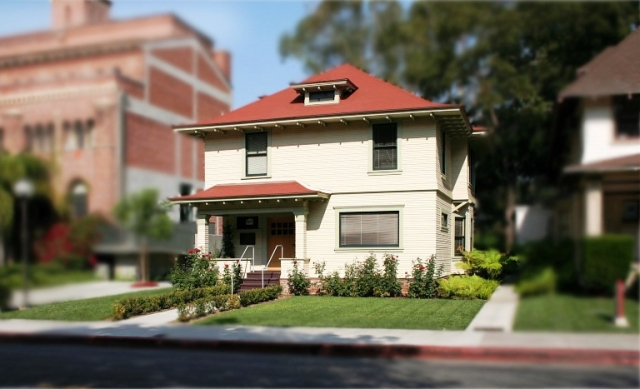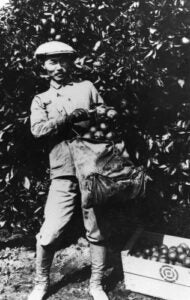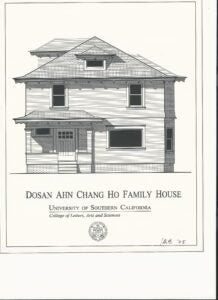
Ahn Family House
Important Note
Please note that we are not a museum or memorial. We are a working office that hosts academic programs for USC students and scholars.
Please visit our FAQs regarding public visits to our building. Guests must make an appointment in advance by emailing ksi@usc.edu. We cannot host tour company group tours.
Dosan Ahn Chang Ho
Ahn Chang Ho (1878-1938), Korean patriot, educator, social reformer and statesman. He was born in Gangseo of Pyeongnam Province, in present-day North Korea. His family moved to Seoul where he attended a school run by Horace Grant Underwood and embraced Christianity. He became involved in the Korean independence movement when he was 18 and dedicated his life to the modernization of Korea and Korea’s independence movement, including the patriotic enlightenment movement.
Upon arriving in San Francisco with his wife in 1902, Ahn went to a school but was shocked by the miserable lives of Korean Americans. Realizing the urgency of the matter, Ahn left his studies leading to the foundation of the San Francisco Korean Fellowship Society. The society engaged in a variety of activities to secure the rights and interests of Korean Americans and later developed into the Mutual Assistance Society.
Ahn moved to Riverside, California in 1904, leading by example through hard work. Gaining the people’s trust, Ahn became the leader of the Korean community.
He led independence groups like Heungsadan, Young Korean Academy or Sinminhoe, and the New People’s Society and unified the Provisional Government of the Republic of Korea when he was appointed as acting premier. He promoted the enlightenment movement and led the restoration of national right movements in the U.S., China, and Russia, which twice resulted in him becoming imprisoned. He later suffered from severe illness and died at 60 years old, before Korea gained its independence.

Ahn House History
This house was residence to the wife and five children of Ahn Chang Ho. Ahn and his wife Helen, were the first Koreans to legally immigrate to America as a married couple. While his family remained in Los Angeles since 1914, Ahn relocated to Shanghai to serve as a minister in the newly formed Korean Provisional Government following the March 1, 1919 uprising. Mrs. Ahn and her children (Philip, Philson, Susan, Soorah and Ralph) lived in this house from 1937-1946. Their home served as a central gathering place for the early Korean American community (it is estimated that 80% of the community lived within a mile of USC). It was also here that the family learned of Ahn’s death in 1938 and Korea’s liberation from Japanese colonial rule in 1945.
The Ahn House Today

The house was originally located southwest of campus when USC purchased and incorporated the structure during a period of campus expansion in the 1960s. While Ahn did not live in this house himself, in recognition of the historical value of this site for the early Korean American immigrant community and Korean independence activists, the USC Dornsife College contributed to the renovation and relocation of the house. It was moved to this location in 2004 to house the Korean Studies Institute and given historic status by the city of Los Angeles for its American Foursquare architectural style.
Contact Us
809 W 34th St., Los Angeles, CA. 90089
To get in touch or learn more about the Korean Studies Institute, please reach out to us by email or by phone.